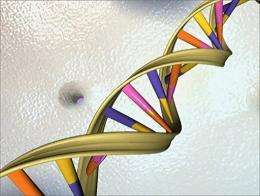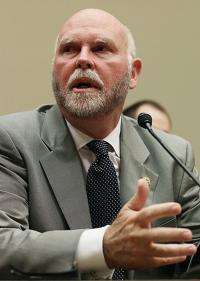Science of man-made life can proceed: US panel (Update 2)

A White House panel said on Thursday the controversial field of synthetic biology, or manipulating the DNA of organisms to forge new life forms, poses limited risks and should be allowed to proceed.
An expert commission convened by President Barack Obama advised vigilance and self-regulation as scientists seek ways to create new organisms that could spark useful innovations in clean energy, pollution control and medicine.
Critics, including environmental advocates, accused the panel of not taking their concerns seriously and said that allowing science to police itself was tantamount to offering no oversight at all.
The Presidential Commission for the Study of Bioethical Issues "concluded that synthetic biology is capable of significant but limited achievements posing limited risks," it said in its first report.
"Future developments may raise further objections, but the commission found no reason to endorse additional federal regulations or a moratorium on work in this field at this time."
The 13-member panel of scientists, ethicists and public policy experts was created by Obama last year.
Its first order of business was to consider the issue of synthetic biology after the J. Craig Venter Institute announced in May it had developed the first self-replicating bacteria cell controlled by a synthetic genome.
Those opposed to Venter's techniques said the discovery was tantamount to "playing God," and creating novel organisms that could be dumped into the environment without adequate understanding of the ramifications.
Announcing the creation of the "first synthetic cell," lead researcher Craig Venter said at the time it "certainly changed my views of the definitions of life and how life works."

But the commission said Venter's team had not actually created life, since the work mainly involved altering an already existing life form.
"Thoughtful deliberation about the meaning of this achievement was impossible in the hours that elapsed between the breaking news and the initial round of commentaries that ensued," it said in its report.
"Of note, many scientists observe that this achievement is not tantamount to 'creating life' in a scientific sense because the research required a functioning, naturally occurring host cell to accept the synthesized genome."
Commission chair Amy Gutmann said the panel considered a range of approaches to regulating the new scientific field, from allowing unbridled freedom to imposing strict government regulation on experiments.
"We chose a middle course to maximize public benefits while also safeguarding against risks," she said.
"Prudent vigilance suggests that federal oversight is needed and can be exercised in a way that is consistent with scientific progress."
As to the risk of releasing modified organisms into nature, a scenario some have warned could spark biological threats or damage to the ecosystem, "scientists and ethicists advised careful monitoring and review of the research," the panel said.
The panel also urged greater cooperation among federal agencies that oversee product licensing and funding of synthetic biology, and collaboration with world governments and global groups like the World Health Organization.
"Educational classes on the ethical dilemmas raised by synthetic biology should be a mandatory part of training for young researchers, engineers, and others who work in this emerging field," it added.
A spokesman in the White House's Office of Science and Technology Policy said the Obama administration was "grateful" for the report and highlighted the panel's conclusion that no new regulatory bodies were needed.
"We appreciate the commission's main conclusion that synthetic biology does not currently pose novel safety or ethical issues that require the creation of new oversight bodies," the spokesman said.
A coalition of 58 groups from 22 countries sent a letter of protest to the panel, saying "this process has not resulted in recommendations that recognize the serious threats synthetic biology pose to the environment, workers' health, public health, and social justice."
"We are disappointed that 'business as usual' has won out over precaution in the commission's report," said Eric Hoffman, biotechnology policy campaigner for Friends of the Earth and of the signatories.
"Self-regulation equates to no regulation."
(c) 2010 AFP
















